What is a Good SEER Rating? SEER Rating Meaning and Importance
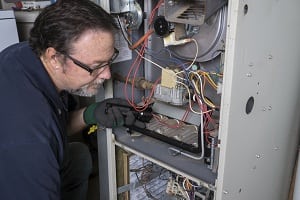
A SEER rating is the maximum rating of efficiency for your HVAC unit. This means that though the SEER rating displays a certain number, it’s not always working at that number - the SEER rating number only displays the maximum level of efficiency it can operate at.
SEER ratings are super simple if you just think about them the way you think about MPG in a car. Your car displays a certain MPG, but if you're revving the engine and speeding down the interstate, you're probably not going to get the listed MPG. Apply this concept to your AC unit, and you can see how constantly changing your home's temperature can result in a decrease in efficiency and a suboptimal SEER rating.
Are High SEER Ratings Worth it?
If you've heard the common sales pitch "this SEER rating will pay for itself in 10 years", or something like that, then we hope you haven't fallen for this. Remember, the SEER rating is a measurement of maximum efficiency. It's the limit of your HVAC unit. This means that if you are putting some heavy usage on your AC unit, then you're definitely not getting that high SEER rating number that is labeled on your unit.
In all honesty, we'd prefer to be the HVAC contractor that achieves success by customer trust and long-term repeat customers, not sales pitches on expensive high SEER equipment - that's why we're telling you all of this. In fact, we'd prefer it this way, otherwise, our customer service line would be flooded with irate customers. We don't want that, you don't want that - let's move on.
Upgrading Your Condenser to a higher SEER Rating Does NOT Make Your Entire System that SEER Rating
Many of our customers wonder how they can save money while at the same time upgrading their SEER value. The biggest misconception out there is that you'll improve your SEER rating by purchasing a higher SEER condenser. Well, you can't! You can't just upgrade one HVAC component at a time and expect a higher SEER rating. Not to mention that many components are not compatible with each other causing a whole other batch of headaches to deal with. Stick to this rule of thumb - if you really want that higher SEER rating, have an entirely new HVAC system installed, please.
We hope this sheds some light on SEER ratings and that you have all the information you need to make an informed decision about your new HVAC installation, repair, or maintenance. Thank you again for reading and please call or contact one of our NexGen technicians for any questions you may have about SEER value or any HVAC-related concerns.
Call NexGen Today
Our expertise and commitment to customer satisfaction make us the leading HVAC company in Southern California. To learn more about our equipment, services, and protection plan,
book an appointment online or call
888-277-0415.
Covering Your Air Conditioner During Winter to Prevent Damage
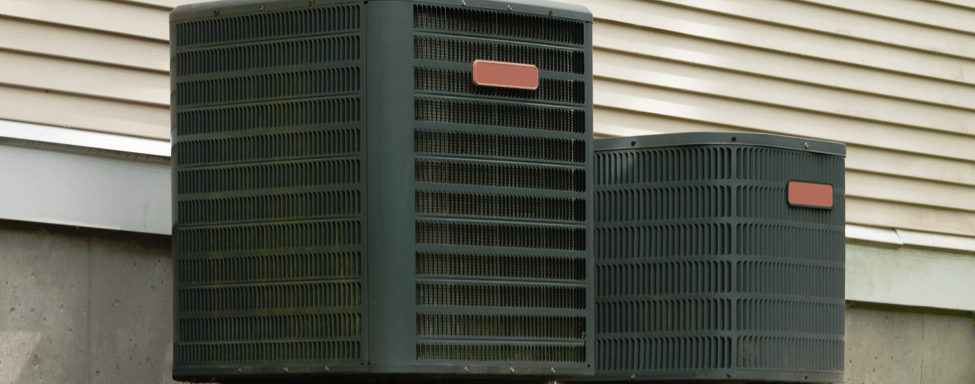
Plan Early
After going through a long summer pumping cool air through your home, your central air conditioning unit is finally enjoying a much-needed rest during winter. There are some essential steps that you should take to protect your AC unit during winter so that it will be ready to serve you better when the temperatures start to rise again.
Typically, the air conditioning system has been built to survive in tough weather, and some homeowners say that their AC units still work fine even when they fail to implement any protective measures during winter. However, the outdoor unit may be damaged by debris, repeated freeze-and-thaw cycles, and moisture buildup if you fail to perform any protective action during winter.
Most homeowners have been wondering whether it’s good to cover the air conditioning unit during winter. In fact, this has been a heated debate in the heating and cooling industry for long. Nonetheless, there are several advantages to covering your unit.
Covering Your AC Unit Helps to Protect It from Hailstorms
It may not be necessary to cover your AC unit if you live in areas that don’t experience hailstorms, but if you live in the north, it might be worthwhile if you consider covering it in winter. For instance, it’s not strange to encounter hail in the Midwest.
Although it’s difficult to know when a massive storm is coming, covering your AC units acts as a proactive measure that safeguards it against potential destruction. Dripping water from gutters and trees can also get into the system. The water turns into ice when temperatures drop which can damage the fins.
Helps to Keep the AC Coils Cleaner
Covering your AC units helps in keeping your air conditioner coils a little cleaner since external dirt is kept at bay. This will help it to run a little more efficiently when it’s time to use it again in the summer. An air conditioner cover also makes the AC unit look better in the long run.
Prevents Dried Leaves and Flying Debris from Getting Caught in the Fins
One of the most sensitive parts of your AC unit is the fins of your outdoor air conditioner’s condenser coils. Flying leaves and debris can cause severe problems to your unit. The coils won’t be able to release cold air to cool your home when the temperatures begin to rise in summer.
Apart from covering your unit, you should also consider cleaning the coils before the hot season begins. Sometimes, falling ice can also hit the unit with a lot of force causing severe damage to the delicate coil fins.
Protects Your Unit against Blizzards
If you know that you’re living in an area prone to snowstorms, then covering your air conditioner unit can help a big deal. If snow accumulates inside your unit, then melting and refreezing it will automatically damage the coils. Make sure that you cover your AC unit just before a blizzard and uncover it after. You should also spare some time and clear the snow around the outside unit.
Call NexGen Today
Our expertise and commitment to customer satisfaction make us the leading HVAC company in Southern California. To learn more about our equipment, services, and protection plan,
book an appointment online or call
888-277-0415.
The Dangers of High Temperatures in California
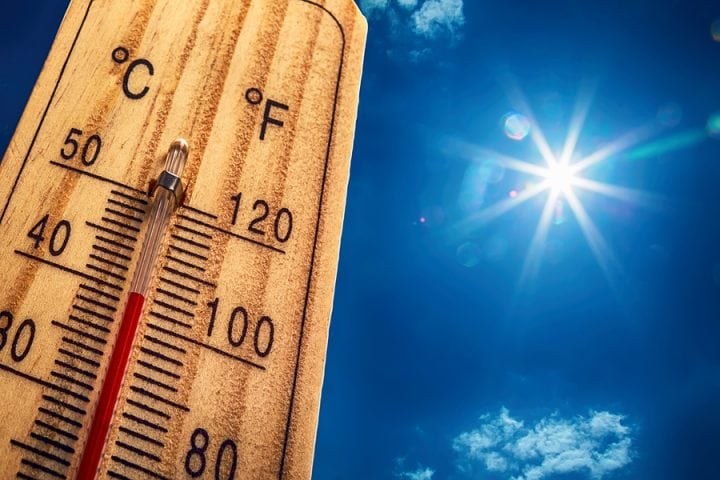
High temperatures aren’t just a risk to your health, but your home’s HVAC system. The summer brings with it the sweltering heat and humidity, and sometimes those temperatures can escalate to dangerous degrees. Most homeowners rely heavily on their air conditioners to combat the heat, but over time those intense temperatures can wear down your ac unit. Luckily there are a few tricks you pull from your sleeve to protect yourself and your air conditioner.
How You Can Maintain Your Air Conditioner in High Temperatures
There’s only so much you can do to fight the heat, but that doesn’t mean you or your air conditioner have to take it lying down. A cool and comfortable home means staying on top of what your air conditioner needs, as well as monitoring habits, and avoiding activities that emit a lot of heat. The summers in California can be intense, but that doesn’t mean you have to fret. Here’s what you can do to stay safe and avoid the miserable heat.
Invest in a digital thermostat.
It’s a common misnomer that if you keep your air conditioner running at the lowest of temperatures, it’s the best way to stave off the heat. In reality, having your air conditioner constantly circulating a 60-degree temperature throughout your house will only overwork your ac unit. Keeping the room temperature at 77-78 degrees is still comfortable despite the sweltering heat outside, and it doesn’t overstress your air conditioner. Using a digital thermostat also helps to monitor your home’s room temperature throughout the day, and to adjust it accordingly.
Replace your air filter.
Your air conditioner is an air filter that collects dust, allergens, and debris, that would otherwise be circulated throughout your house. Over time, those filters can collect enough dirt to clog the ventilation in your air conditioner. An ac unit that’s not properly ventilated will not only circulate dirty air, but it can eventually break down. To keep your air conditioner running and the air inside your house clean, it’s important to replace your air filter every 30-60 days.
Schedule yearly tune-ups.
The more maintained your air conditioner is, the better it can do its job. That’s why it’s important to schedule an annual tune-up with your HVAC specialist. An HVAC professional is trained to thoroughly inspect and fix any problems that prevent your ac unit from working effectively. The best way to take care of your air conditioner is to catch issues early, and that’s exactly what a yearly tune-up can do for you.
Keep the sun out of your house.
It sounds like an obvious idea to try and avoid the sun, but the summer heat provides several different heat traps inside your home. Closing curtains that face the sun is an easy way to block out some of the heat. Treating your windows with thermal lined curtains and window tinting helps to refract those UV rays. Planting trees and shrubs around your house can provide natural shading and a buffer between the sun and your house. Even painting your walls a brighter color can help to reflect some of that oppressive solar energy.
Monitor your habits.
Another important thing to remember is your daily habits. Several routine chores can emit a lot of heat such as using the dishwasher, oven, and dryer. If you can, avoid cooking inside and take shorter showers, as both activities contribute a lot of heat and humidity inside your home. Unplug any unused appliances, and try to keep your fridge and freezer full of food. Any electrical appliance in use will naturally generate some heat, so it’s best to monitor how and when you use these appliances.
Ventilate your home.
Ventilation is important when you’re trying to combat the heat. Closing off closets and empty rooms and using fans helps to better circulate that cool air throughout your house. Keeping your vents and air ducts clear from obstructing furniture is also very helpful and prevents your air conditioner from overworking itself.
Insulate your home.
Whatever cool air you generate, you’ll want to keep that inside your house. A house that isn’t properly insulated, however, is prone to air leaks which make it more difficult to stay cool and comfortable. Sealing leaky doors, windows, and air ducts means more cool air is circulated where it needs to go. Insulating your attics and installing attic vents will also help to keep the cold in and the heat out.
Your Health Should Never be at Stake
High temperatures put everyone at risk, causing discomfort and dehydration, and even much more fatal symptoms such as heat stroke. As a homeowner, you shouldn’t have to suffer inside the comfort of your own home, but that does mean taking proper care of your air conditioner. A scheduled tune-up with an HVAC technician is the perfect way to prepare your home for the incoming heat. Don’t wait until it’s too late, set up an appointment today.
Call NexGen Today
Our expertise and commitment to customer satisfaction make us the leading HVAC company in Southern California. To learn more about our equipment, services, and protection plan,
book an appointment online or call
888-277-0415.
10 HVAC Facts
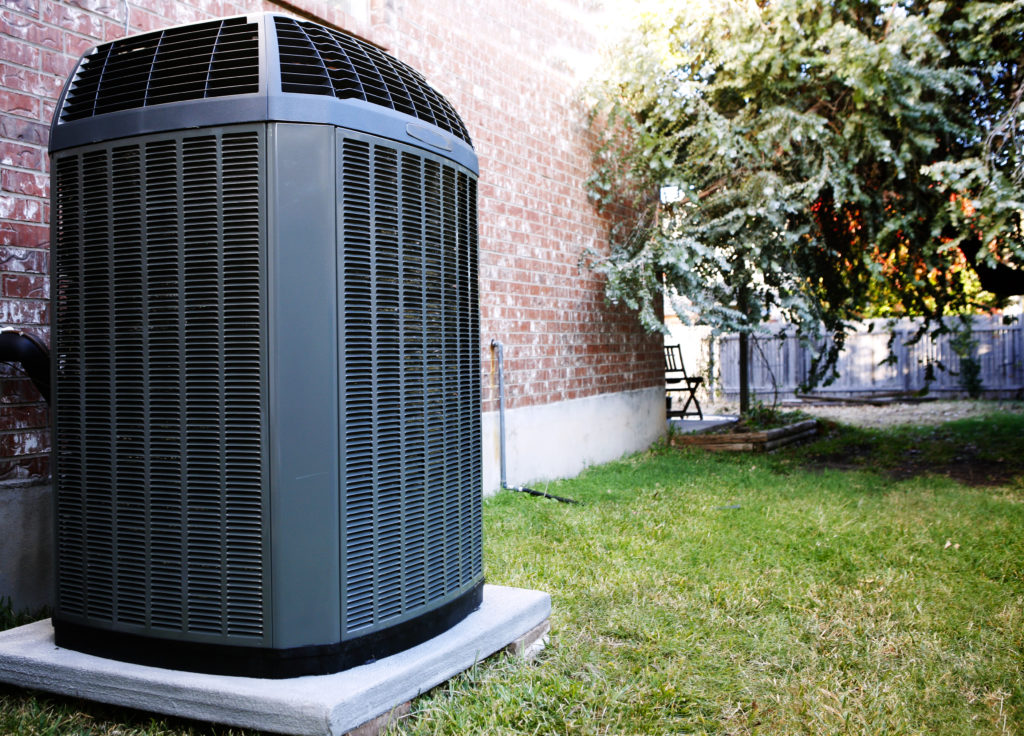
HVAC is not something the average person understands, whether you own your own home or currently rent an apartment unit, monthly utility bills are often a big question. You never really know what it might cost when you open that envelope. Wouldn't it be nice to no longer worry about the number looking back at you? By cutting down energy consumption, you can save hundreds, if not thousands of dollars every single year.
You've probably heard many of the common energy saving recommendations, such as switching out old light bulbs for new energy saving options. However, by looking further into these 10 HVAC facts, you'll not only learn a bit more about your heating and cooling system, but also a few ways to trim down monthly energy consumption.
1. Where Does Most Energy Usage Come From?
Did you know the vast majority of your energy consumption comes from three different appliances in your home? That's right. 75% of your home's total energy usage stems from your water heater, air conditioner, and furnace. This means if you can improve the energy efficiency of these three appliances you'll save a substantial amount throughout the year. But what options do you have? First, how old is your water heater? An old water heater bleeds energy. If it is time for an upgrade, consider a tankless water heater.
2. Almost Half of Homeowners Don't Know What Their Monthly Electric Bill Is
Yes, 47% of homeowners don't know what they're spending on electricity. Would you do that for your mortgage, rent, car insurance or cell phone? Probably not. You need to know what you are paying and monitor changes in monthly bills. By doing this, you'll have a better understanding of what you're paying and how it changes throughout the year. This way, you can make necessary changes to improve energy efficiency.
3. Sleep Better With the Right Temperature
Struggling to sleep? Maybe it's your home's temperature. Optimal sleeping temperatures are between 65 and 72. Do different family members need varying room temperatures to sleep? Consider switching to a ductless multi-room system. This allows you to control each room's temperature directly and can save you money along the way (as you're no longer cooling or heating the guest bedroom or other areas of the house you rarely use).
4. 10 Degrees is 14%
According to the American Council for an Energy-Efficient Economy, if you turn down your thermostat 10 degrees while out of the house and at night, you'll save 14% on your energy bill. With a programmable thermostat, you can easily make this change. A smart thermostat gives you, even more, control, allowing you to change the home temperature from your smartphone.
5. Save With Cooler Water
Everyone loves a hot shower. But do you need it that hot? If you turn down the temp on your water heater by 10 degrees, you can save up to 5% annually on energy costs. If your water heater is on the older side, replacing it can help boost energy efficiency even further.
6. Monthly HVAC Savings
By transforming your house into an energy-efficient home, you can save at least $75 a month. Over the span of 30 years, this equals a savings of $27,000.
7. Replace That Old Furnace
A furnace's life expectancy is 20 years. However, as it ages, it becomes less efficient. This is why you need to have it annually inspected in order to maintain performance and reduce energy costs. Every year, newer furnaces are sold with improved energy efficiency ratings.
8. The AFUE Rating
Did you know your heating system's AFUE rating can tell you the percentage of fuel consumed for heat and what you're losing? Stay on top of this to see if there is a change. It means you're losing fuel in the transfer. Insulation options can help cut fuel loss and improve your heating system.
9. Beware the Power Vampire
There are many appliances that still draw power, even when turned off. These appliances are referred to as "Power Vampires." Consider either unplugging unused appliances or connecting everything to a power-saving power strip. Throughout the United States, all the energy lost to power vampires annually is enough to power 7,387 homes a year.
10. The Love of Central Air
According to the US Census Bureau of the American Housing Survey, 65% of households have central AC. Only 22% use a room or window unit. The rest either don't have AC or use an alternative cooling method. AC units can kill your energy bill if you're not careful. In fact, the amount of energy the United States uses annually to run AC units is the same amount of energy, in total, used by the entire African continent.
Call NexGen Today
Our expertise and commitment to customer satisfaction make us the leading HVAC company in Southern California. To learn more about our equipment, services, and protection plan,
book an appointment online or call
888-277-0415.
How To Best Maintain Your Air Conditioner In Extreme Desert Heat
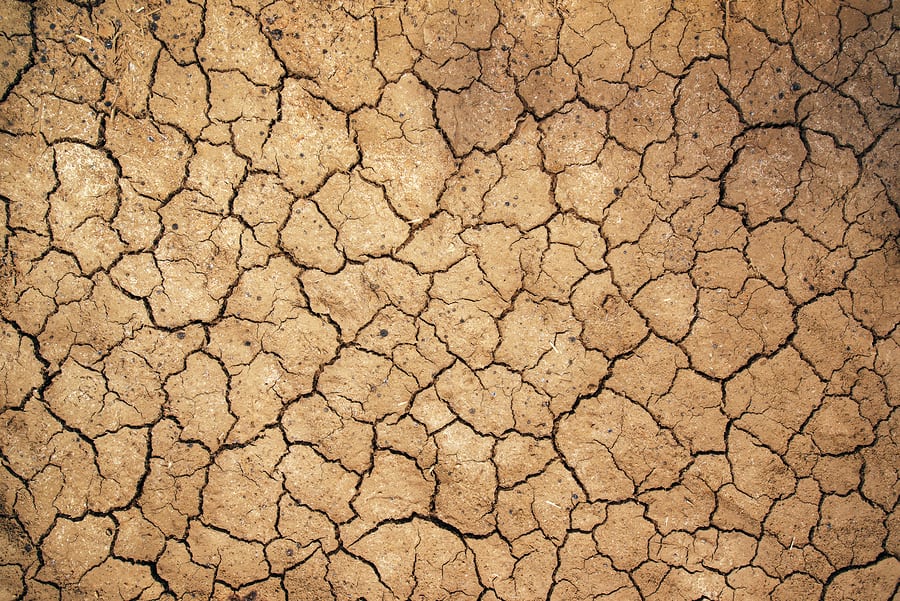
Keeping the heat out of your home, especially when living in a dry, desert climate like California, can add a tremendous amount of stress to your air conditioner. It’s not the issue of whether you spare a few hours without air conditioning, but rather how does one keep up with the upkeep of an overworked air conditioner. Extreme heat means your air conditioner is running constantly to keep your house cooler, and the older the air conditioner, the faster it will wear down.
Warning Signs of a Damaged Air Conditioner
A good place to start is to make sure your air conditioner is working correctly. An air conditioning unit that’s constantly running in extreme heat generally means problems are more frequent to happen. Sometimes it’s difficult to find the culprit, however, and because of that, damaged air conditioners are left untreated until they break down. To avoid costly repairs, here are a few warning signs to look out for.
Dirty filters
Over time, the filters inside the air conditioner collect dust, dirt, and allergens. Filters should be cleaned at least once a month, but because of the extreme heat, these filters collect dust and debris faster than normal. When the filter becomes clogged, the air conditioner has to work even harder to keep your house cool. Cleaning filters is one of the easiest and most effective ways to maintain your air conditioner.
Unwanted moisture
If you find your air conditioner is leaking, there could be a serious problem. The air conditioner could be leaking refrigerant, which is a health hazard that requires a professional technician to repair your unit immediately. Water pooling adjacent to your air conditioner; however, could mean the drain tube that removes condensation is either blocked or broken. A damaged drain tube is not as serious of a problem but should be taken care of within a reasonable amount of time to avoid mold.
Strange sounds and odors
Squealing, grating, or grinding sounds imply something inside the unit needs to be replaced. A squealing sound could mean the belt slipped out of place or a metal component needs more lubrication. If you hear grinding, the unit’s motor bearings might be broken. If something smells foul, the wire insulation may have burned out. If something smells musty, there could be mold inside the air conditioner or ductwork.
What You Can Do
For homeowners who live in extreme heat climates, it’s especially important to keep up with maintenance. Routinely cleaning and repairing your air conditioner not only extends the unit’s lifetime, it helps keep it running efficiently. Routine maintenance for your air conditioner isn’t the only method to keep your house cool, however, as habits and other appliances can impact the temperature inside your home as well. The good news is how much you can do to keep your house cool under extreme heat conditions.
Don’t confuse your thermostat
Make sure to keep any appliances that emit heat away enough from your thermostat. A thermostat that senses heat generated from a lamp or TV nearby can result in your air conditioner running longer than necessary. An accurate thermostat will help keep everything running efficiently.
Keep out plants and other debris
To maintain adequate airflow, it’s important to keep all plants and debris at least two to four feet away from the air conditioning unit. Building a fence around the air conditioner can help to keep shrubs, tree branches, and other bigger plants away.
Keep your air conditioner cool
Whether it’s inside or outside the house, it’s important to keep your air conditioner in a cool, shaded space, away from direct sunlight. Installing it on the shady side of your home, or using shrubs or a fence to provide shade, can help your air conditioner run more efficiently.
Keep as much of the sun out of your house
Open windows are an invitation for extra heat to come in, that’s why it’s beneficial to always close curtains that face the sun. Installing thermal liners in your curtains also helps to reflect some of that residual heat out the window. Windows with a residential tint film will help to cut off sunlight significantly.
Monitor your habits and appliances
A lot of activities, such as cooking, showers, and laundry, can generate heat. To keep your house cool, try cooking outside as much as possible. Avoid using the oven, and when using the dishwasher, let your dishes air dry versus using the dry cycle. Shorter showers with proper ventilation will also help keep the humidity down. If possible, hang dry your laundry outside or avoid using the dryer during peak daytime temperatures.
Maintain a good airflow
Good air circulation helps your air conditioner to run smoothly as well as keeping that cool air running through your home. Closing doors to unused rooms, closing closets, moving furniture, and using fans all help to keep a good airflow inside your home.
Don’t Wait Until the Unit Breaks
Nothing is more devastating or costly to a homeowner than having to live inside their home without a functioning air conditioner. Routine maintenance and energy-efficient habits are important to maintain your air conditioner, but it’s also crucial to have an HVAC contractor perform yearly maintenance. If there is ever something wrong with your air conditioner, a professional HVAC contractor can diagnose the problem. By providing you with the most effective solution, they can help keep your air conditioner running efficiently and longer.
Call NexGen Today
Our expertise and commitment to customer satisfaction make us the leading HVAC company in Southern California. To learn more about our equipment, services, and protection plan,
book an appointment online or call
888-277-0415.













